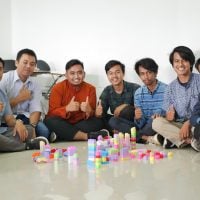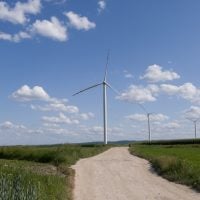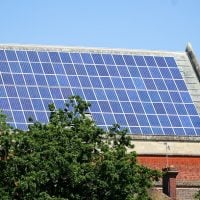The intersection of renewable energy and gender equality is a critical area of focus in today’s global landscape. As the world grapples with the urgent need to transition from fossil fuels to sustainable energy sources, it is essential to recognize that this transition can also serve as a powerful catalyst for advancing gender equality. Women, particularly in developing countries, are often disproportionately affected by energy poverty, which limits their access to education, healthcare, and economic opportunities.
By integrating gender considerations into renewable energy initiatives, we can create a more equitable society while simultaneously addressing climate change. Renewable energy technologies, such as solar, wind, and bioenergy, have the potential to empower women by providing them with access to clean and affordable energy. This access can lead to improved health outcomes, increased educational opportunities, and enhanced economic participation.
For instance, when women have access to electricity, they can study after dark, run small businesses, and utilize modern cooking technologies that reduce indoor air pollution. Thus, the promotion of renewable energy is not just an environmental imperative; it is also a social justice issue that requires urgent attention from policymakers, NGOs, and donors alike. Are You Working on Solar Innovation or Clean Energy Access? Join us to receive updates.
Key Takeaways
- Renewable energy and gender equality are interconnected and essential for sustainable development
- Donor support plays a crucial role in advancing renewable energy and gender equality initiatives
- Top donors have a significant impact on promoting renewable energy and gender equality
- Donor support is vital for advancing gender equality and empowering women in the renewable energy sector
- Examples of top donors demonstrate the commitment to supporting renewable energy and gender equality initiatives
The Importance of Donor Support in Advancing Renewable Energy and Gender Equality
Donor support plays a pivotal role in advancing both renewable energy initiatives and gender equality. Financial contributions from governments, foundations, and private sector entities can help bridge the funding gap that often hinders the implementation of innovative projects aimed at these dual goals. By providing resources for research, development, and deployment of renewable energy technologies, donors can facilitate the creation of sustainable solutions that are inclusive and equitable.
Moreover, donor support can help raise awareness about the importance of integrating gender perspectives into energy policies and programs. When donors prioritize gender equality in their funding strategies, they send a strong message to governments and organizations about the need for inclusive approaches. This not only enhances the effectiveness of renewable energy projects but also ensures that women are actively involved in decision-making processes related to energy access and management.
Ultimately, donor support is essential for creating an enabling environment where both renewable energy and gender equality can thrive.
The Role of Top Donors in Promoting Renewable Energy

Top donors have a unique opportunity to influence the renewable energy landscape significantly. By allocating funds specifically for renewable energy projects, these donors can drive innovation and accelerate the transition to sustainable energy systems. For example, organizations like the Global Environment Facility (GEF) and the Green Climate Fund (GCF) have made substantial investments in renewable energy projects worldwide, focusing on both mitigation and adaptation strategies.
In addition to financial contributions, top donors can leverage their influence to advocate for policy changes that promote renewable energy adoption. By collaborating with governments and international organizations, they can help create regulatory frameworks that support clean energy initiatives. Furthermore, top donors can facilitate knowledge sharing among stakeholders by funding research and capacity-building programs that empower local communities to implement renewable energy solutions effectively.
The Role of Top Donors in Advancing Gender Equality
Top donors also play a crucial role in advancing gender equality through their funding strategies. By prioritizing gender-focused initiatives, they can help dismantle systemic barriers that prevent women from accessing resources and opportunities. For instance, organizations like the United Nations Development Programme (UNDP) have launched programs aimed at empowering women in various sectors, including renewable energy.
Moreover, top donors can support initiatives that promote women’s leadership in decision-making processes related to energy policy and management. By investing in training programs and mentorship opportunities for women in the energy sector, donors can help cultivate a new generation of female leaders who are equipped to advocate for gender-responsive energy policies. This not only benefits women but also enhances the overall effectiveness of renewable energy initiatives by ensuring diverse perspectives are included in decision-making processes.
Examples of Top Donors Supporting Renewable Energy and Gender Equality
Several top donors have made significant strides in supporting both renewable energy and gender equality initiatives. The World Bank Group has launched various programs aimed at increasing women’s access to clean energy technologies while simultaneously promoting sustainable development. One notable example is the “Lighting Africa” initiative, which aims to provide affordable solar lighting solutions to millions of people in sub-Saharan Africa, with a particular focus on empowering women entrepreneurs.
Another example is the United States Agency for International Development (USAID), which has implemented programs that integrate gender considerations into renewable energy projects. Their “Power Africa” initiative not only aims to increase access to electricity but also emphasizes the importance of women’s participation in the energy sector. By providing training and resources for women-led businesses in renewable energy, USAID is helping to create a more inclusive energy landscape.
Impact of Donor Support on Renewable Energy and Gender Equality Initiatives

The impact of donor support on renewable energy and gender equality initiatives cannot be overstated. Financial contributions enable organizations to implement innovative projects that address both issues simultaneously. For instance, donor-funded initiatives have led to the development of solar microgrids in rural areas that not only provide electricity but also create job opportunities for women as technicians and entrepreneurs.
Furthermore, donor support has facilitated research that highlights the importance of gender-responsive approaches in renewable energy projects. Studies have shown that when women are involved in decision-making processes related to energy access, projects are more likely to be successful and sustainable. This evidence underscores the need for continued donor investment in initiatives that prioritize both renewable energy and gender equality.
Challenges and Opportunities in Donor Support for Renewable Energy and Gender Equality
Despite the progress made in donor support for renewable energy and gender equality initiatives, several challenges remain. One significant challenge is the lack of data on gender-specific impacts of renewable energy projects. Without comprehensive data, it becomes difficult for donors to assess the effectiveness of their investments and make informed decisions about future funding priorities.
Additionally, there is often a disconnect between donor priorities and local needs. While donors may focus on high-profile projects or specific technologies, local communities may require tailored solutions that address their unique challenges. This misalignment can hinder the effectiveness of donor support and limit its impact on advancing both renewable energy and gender equality.
However, these challenges also present opportunities for innovation and collaboration. By fostering partnerships between donors, NGOs, and local communities, stakeholders can co-create solutions that are responsive to local needs while aligning with broader goals of sustainability and equity. Furthermore, increased emphasis on data collection and analysis can help inform more effective donor strategies moving forward.
Strategies for Effective Donor Support in Renewable Energy and Gender Equality
To maximize the impact of donor support in advancing renewable energy and gender equality, several strategies can be employed. First and foremost, donors should prioritize funding for projects that explicitly integrate gender considerations into their design and implementation. This includes supporting initiatives that empower women as leaders in the energy sector and ensuring their voices are heard in decision-making processes.
Additionally, donors should invest in capacity-building programs that equip local communities with the skills and knowledge needed to implement renewable energy solutions effectively. By providing training opportunities for women in technical fields related to renewable energy, donors can help create a more diverse workforce that reflects the communities they serve. Finally, fostering collaboration among stakeholders is essential for effective donor support.
By bringing together governments, NGOs, private sector actors, and local communities, donors can facilitate knowledge sharing and co-create solutions that address both renewable energy access and gender equality.
Collaborative Efforts between Donors and Organizations in Advancing Renewable Energy and Gender Equality
Collaborative efforts between donors and organizations are vital for advancing both renewable energy initiatives and gender equality. By working together, stakeholders can leverage their respective strengths to create more impactful solutions. For example, partnerships between NGOs focused on women’s empowerment and organizations specializing in renewable energy can lead to innovative projects that address both issues simultaneously.
One successful collaboration is the partnership between the Global Alliance for Clean Cookstoves and various donor organizations aimed at promoting clean cooking technologies. This initiative not only addresses environmental concerns but also empowers women by reducing their exposure to indoor air pollution caused by traditional cooking methods. Such collaborations demonstrate how aligning goals can lead to transformative outcomes for communities.
Future Outlook for Donor Support in Renewable Energy and Gender Equality
The future outlook for donor support in advancing renewable energy and gender equality appears promising but requires sustained commitment from all stakeholders involved. As awareness grows about the interconnectedness of these issues, more donors are likely to prioritize funding for initiatives that address both climate change and social equity. Moreover, as technology continues to evolve rapidly, new opportunities will emerge for innovative solutions that empower women while promoting sustainable energy practices.
For instance, advancements in battery storage technology could enable greater access to renewable energy sources for marginalized communities, further enhancing women’s economic opportunities.
The Continued Need for Donor Support in Advancing Renewable Energy and Gender Equality
In conclusion, donor support remains crucial for advancing both renewable energy initiatives and gender equality worldwide. By prioritizing funding for projects that integrate these two critical areas, donors can help create a more sustainable future while promoting social equity. The examples of successful collaborations between top donors and organizations illustrate the potential for transformative change when resources are allocated strategically.
As we move forward into an era where climate change poses significant challenges to global stability, it is imperative that we continue to advocate for increased donor support aimed at empowering women through access to clean energy solutions. The path toward a more equitable society is intertwined with our ability to harness the power of renewable energy—an endeavor that requires collective action from all sectors of society.









































